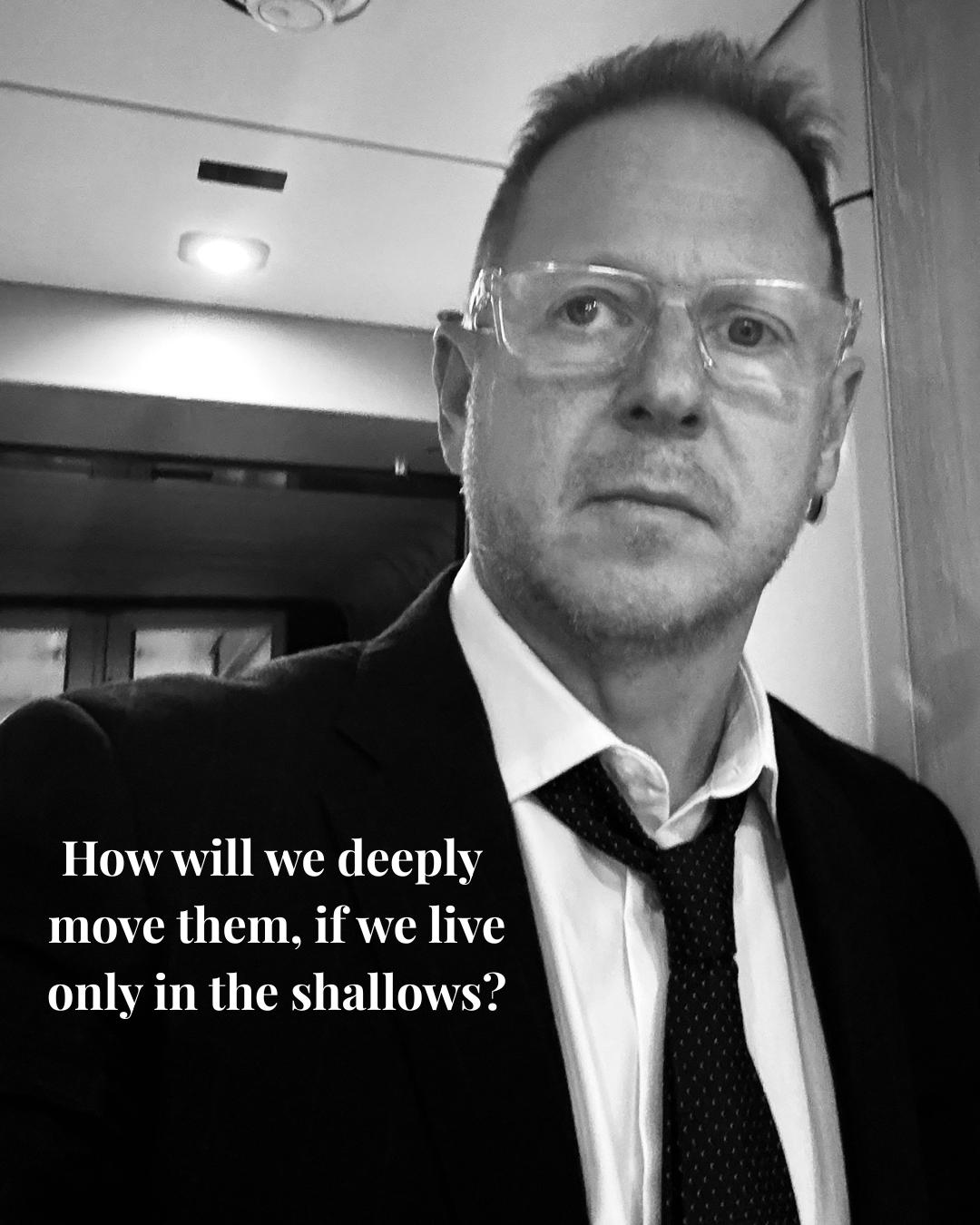How will we deeply move them if we live only in the shallows?
I've a tendency to explore things quite deeply at times.
And while I am sure this frustrates others who may wish I would cover more ground more quickly, there is something enriching about digging into the real meaning of a narrative or a piece of data, even a phenomenon that others may briefly observe before moving on.
This inclination means I might watch the same movie many times, not only allowing myself to understand the writer's often brilliant but overlooked characters, but also truly grasping the deeper meaning of the story and how it I might see myself in it.
Stories like the Godfather and Breaking Bad explore the ever-deepening corruption of what initially seems like a noble character. Truly great characters like Michael Corleone or Walter White initially seem like classic 'good guys' until we watch them, one choice at a time, descend into a spiral of darkness and soul and family-destroying selfishness.
Or at the other end of the spectrum, I recall being captivated by the film La La Land, not because I especially like musicals, but because there is something about that film that so beautifully ties its own story with the nature of the jazz music that pervades it. Jazz often does not resolve into a happy and predictable ending, and La La Land masterfully leaves its audience with the sense of incompleteness that is often true of life itself.
All of these movies nurse tension and navigate the internal conflicts with which we are all familiar.
I regret that we do not allow ourselves to dwell on such conflicts for longer. As staff at any zoological garden will tell you, many visitors think that hippos stay under water for hours at a time. But in reality, the great beasts are under water for 1-2 minutes. It's just that most visitors simply don't look for long enough to see them.
Having spent my career working for one type of charitable organisation or another, I have found that many well-meaning people rush around never fully appreciating the depth of the work they are doing. The cult of activity has caused us to trade depth for movement.
Rushing from one meeting to another five days a week may sound like it is productive, but is it really? What if our working styles and constant distraction by devices result in our audience never receiving anything more than just enough of a dose to inoculate them against the great power of our organisation's crucial mission?
Perhaps this tendency to dwell is what has drawn me back very often to one particular piece of masterful writing from Shakespeare.
What I'll tell you now might make me sound more highbrow than I am, so please don't be deceived. I absolutely love the bard's Sonnet 29. If I told you it was my favourite sonnet, that wouldn't be very honest of me, because although I can recite 29 and have reflected on it much, I am woefully ignorant about the other 153!
But true to my nature of exploring things thoroughly, I've read it, watched it performed and recited it many times.
In just a few magnificent lines, this truly great poem takes the listener from tarnished reputation and luckless shadows to the soaring heights of realising and cherishing all that really matters.
We are transported from, 'when in disgrace with fortune and men's eyes' to 'for thy sweet love such wealth brings'; and from the heart-breaking 'with what I love the most, contented least', to 'then I scorn to change my state with kings'.
A mere 114 words of deep reflection carefully paints a tale of despair rising into hope, with vivid and memorable imagery on each step of that brief journey.
If Shakespeare could capture the full range of despair and joy in just 114 words, imagine what might happen if we lingered longer with our own stories.
Perhaps what we need most is not another burst of activity, but a deeper permission to pause. To stand still long enough to notice what is really happening beneath the surface of our own work. To feel again the weight and wonder of the stories we carry. If we can learn to dwell there, in the conflict, the beauty, the ache, we might just find the truth that moves others most deeply.
That is the journey I am on and it is the heart of Start With Your Story. If you would like to explore this with me, join me in London on November 13 or Plymouth on 5 March.

